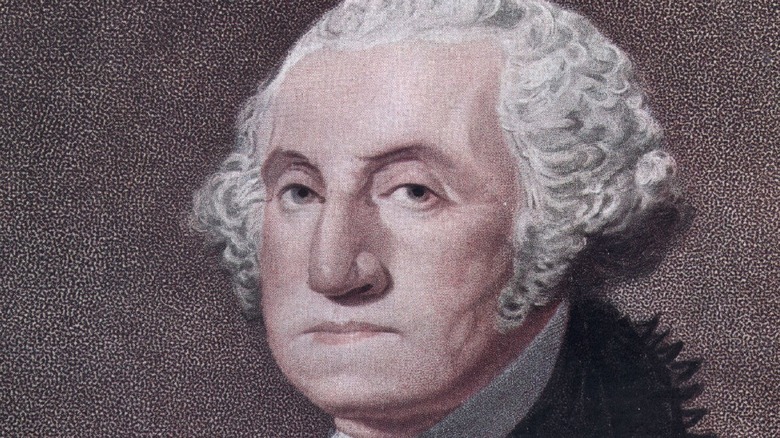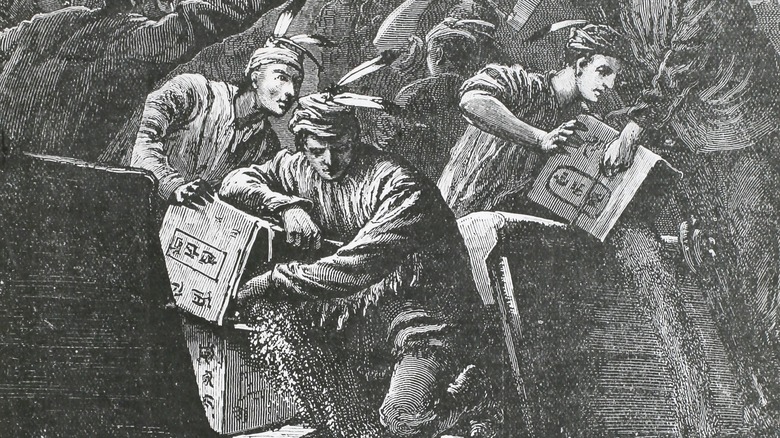How George Washington Really Felt About The Boston Tea Party
According to History, some 342 chests of the East India Trading Company's finest tea were destroyed during the Boston Tea Party of December 16, 1773. That day, the people took a stand against British rule of the colonies (which were subject to heavy taxes on certain goods without a voice in parliament regarding said taxes).
After the Boston Massacre of three years prior (in which, per History, frustrated citizens pelted British soldier Private Hugh White with snow and ice and were fired upon by his reinforcements, resulting in five casualties), it seemed inevitable that the right spark would really set off this powder keg. It certainly did.
What did George Washington himself make of the Boston Tea Party? It seems he was a huge fan of tea. During the September 1776 Battle of Harlem Heights, per Boston Tea Party Ships & Museum, an inventory of his Morris-Jumel mansion revealed multiple sets of fine tea-making and -serving paraphernalia. Perhaps accordingly, and as a result of his own beliefs, he didn't condone the destruction of the tea.
A less-than-sophisticated tea party
As Time reports, The Boston Tea Party was a cause championed by many, but it also proved very controversial with others. In his book "American Tempest: How the Boston Tea Party Sparked a Revolution," Harlow Unger writes that the event drew the ire of many elites and those with a vested interest in business. For such people, according to Unger, private property was "sacrosanct" and its flagrant destruction condemned. With the value of the discarded tea estimated at about $1.7 million in today's money (according to the Boston Tea Party Ships and Museum), it's little wonder that staunch patriots such as Benjamin Franklin were against it.
In a letter from London, England, where Franklin was staying at the time, he wrote to those who had been instrumental in the event (per Boston Tea Party Ships & Museum). "It is yet unknown what Measures will be taken here on the Occasion; but the Clamour against the Proceedings is high and general. I am truly concern'd... that there should seem to any a Necessity for carrying Matters to such Extremity, as... to destroy private Property."
George Washington echoed this view. Ever the patriot, ever the do-gooder, he wrote to George William Fairfax in 1774 (via Mount Vernon), expressing his view that "the cause of Boston ... is and ever will be considerd as the cause of America (not that we approve their cond[uc]t in destroyg the Tea)."

